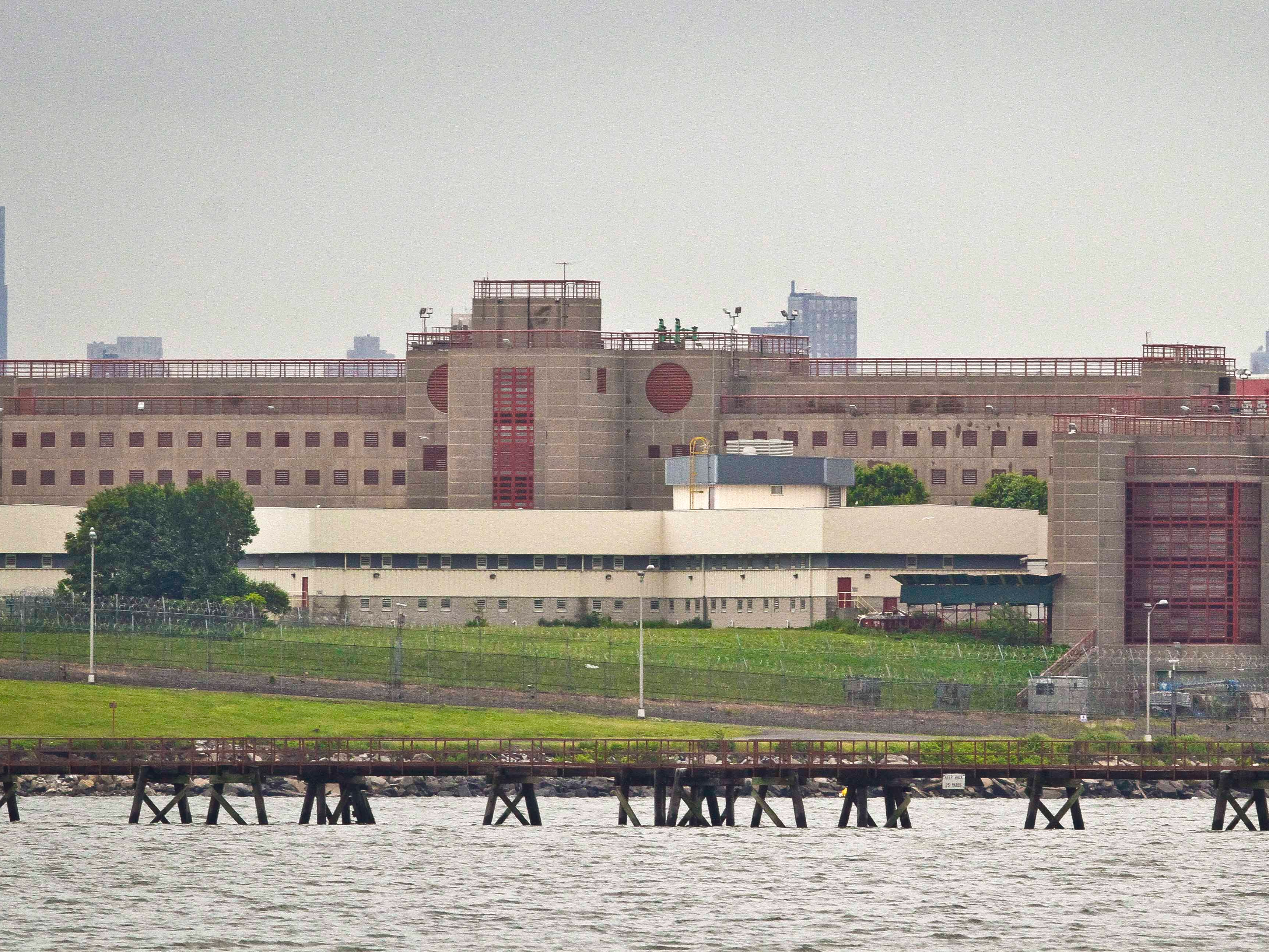New York City will close its notorious Rikers Island jail complex, Mayor Bill de Blasio announced at a press conference Friday, calling the decision a “historic occasion.”
“It will take many years. It will take many tough decisions along the way,” de Blasio said. “But it will happen.”
De Blasio said a combination of crime reduction, alternative sentencing, and bail reform would lower the city’s jail population enough over the next decade to close Rikers Island.
New York City has 9,500 people in custody, and it must bring that number down to 5,000 before the jail can be closed, de Blasio said. He said the process would take at least 10 years.
City officials are working under the assumption that “at least a few new facilities” must be built to accommodate the remaining inmates, de Blasio said, although he could not confirm how many.
"I would argue the fewer the better," he said.
Local activist groups and advocates of criminal-justice reform have long been pushing de Blasio and other city officials to close the troubled complex.
Rikers Island is an expression of a national problem. The mass incarceration era did not begin in New York City but it’s going to end here.
— Mayor Eric Adams (@NYCMayor) March 31, 2017
The city settled in federal court in 2015 after a yearslong federal investigation found that civil-rights violations, corruption, and violence and excessive force were among the jail's systemic problems. A report detailing the investigation said guards had been using solitary confinement to an "excessive and inappropriate" extent to punish inmates, often locking them away for months at a time.
One of the most well-publicized cases was that of Kalief Browder, a 16-year-old who was held in the complex for three years without facing trial, as he could not afford the $3,000 bail. Browder was suspected of stealing a backpack, but consistently maintained his innocence and refused to accept a plea deal.
His stint in Rikers, and particularly the extended periods of time he spent in solitary confinement, prompted ongoing mental health problems that continued long after Browder's release, as he described in a 2014 New Yorker piece.
Browder took his own life in 2015 at the age of 22. His death received national media attention and reignited calls to permanently shutter the jail complex.
De Blasio and Mark-Viverito both discussed Browder during the press conference Friday, after reporters asked whether his suicide in part triggered the decision to close the facilities. De Blasio said that more than anything, the city's use of solitary confinement contributed to Browder's death.
"We did not have any idea how bad the system was," de Blasio said.

De Blasio previously called the effort to close the jail a "noble idea" but an ultimately unworkable one because of the potential billion-dollar price tag and the lack of facilities to transfer inmates to.
De Blasio said at the press conference that he now believes the jail's closure is attainable because of his recent conversations with city officials, including City Council Speaker Melissa Mark-Viverito, about a more realistic timeline.
The officials concluded it could be done in at least a decade.
Mark-Viverito has been a vocal proponent of shutting down the complex. In her "State of the City" speech last year, she detailed criminal-justice reforms that would significantly reduce the jail's population.
"For too long, Rikers Island has stood as a symbol of injustice in our city," Mark-Viverito said on Friday.
New York Gov. Andrew Cuomo has also backed the jail's closing. He took a jab at de Blasio this month for not acting sooner.
"The city has said, 'We can't do it. It's too hard.' Impotence is not a defense for me," Cuomo said, according to the New York Daily News. "It is an outrage for New York City to allow a Rikers to exist."
Media outlets began reporting on Thursday and early Friday that a New York City commission had finished a report recommending the jail be closed, and inmates be moved to smaller jails in each of the five boroughs.
"The commission believes that the use of Rikers Island must be phased out over the next 10 years and its facilities demolished," the report recommended, according to The New York Times.
The commission was launched by City Council last year to study the possibility of closing the jail complex and redeveloping the land, and was led by Judge Jonathan Lippman.
The report is expected to be released Sunday.

